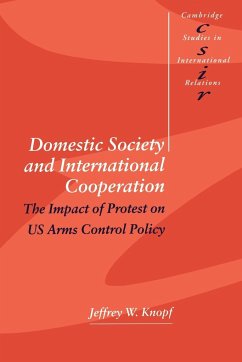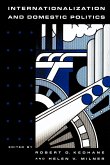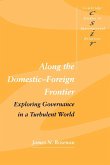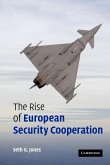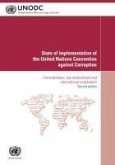In this book, Jeffrey Knopf investigates domestic sources of state preferences about whether to seek cooperation with other countries on security issues. He does so by examining whether public protest against nuclear weapons influenced US decisions to enter strategic arms talks. The analysis builds on the domestic structure approach to explaining foreign policy, using it as the starting point to develop a new framework with which to trace the influence of societal actors. The book's finding that protest had a major impact suggests that prevailing conceptions of the relation between domestic politics and international cooperation need to be broadened. Existing approaches typically assume that state preferences are set by political leaders or powerful interests, thereby treating the rest of society only as a constraint on state action. In contrast, this book demonstrates that ordinary citizens can also serve as a direct stimulus to the development of a state interest in cooperation.
Table of contents:
Introduction; 1. The domestic politics of cooperation: three views; 2. Protest and arms control: a first look; 3. A framework for assessing activism's influence; 4. Eisenhower's first initiatives: a matter of priorities; 5. Eisenhower and the test ban movement; 6. The decision to begin SALT; 7. Reagan and the freeze movement.
This book shows how peace movements affected US decisions to enter nuclear arms control talks during the Cold War. Most scholarship assumes that state policies on pursuing international cooperation are set by national leaders, in response either to international conditions, or to their own interests and ideas. By demonstrating the importance of public protest and citizen activism, Jeffrey Knopf shows how state preferences in this can also be shaped from below.
This book shows how peace movements affected US decisions to enter nuclear arms control talks during the Cold War.
Table of contents:
Introduction; 1. The domestic politics of cooperation: three views; 2. Protest and arms control: a first look; 3. A framework for assessing activism's influence; 4. Eisenhower's first initiatives: a matter of priorities; 5. Eisenhower and the test ban movement; 6. The decision to begin SALT; 7. Reagan and the freeze movement.
This book shows how peace movements affected US decisions to enter nuclear arms control talks during the Cold War. Most scholarship assumes that state policies on pursuing international cooperation are set by national leaders, in response either to international conditions, or to their own interests and ideas. By demonstrating the importance of public protest and citizen activism, Jeffrey Knopf shows how state preferences in this can also be shaped from below.
This book shows how peace movements affected US decisions to enter nuclear arms control talks during the Cold War.

